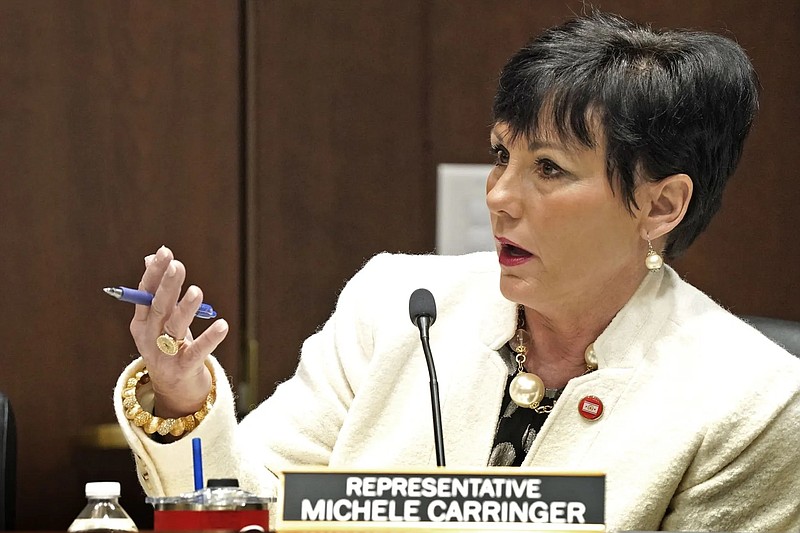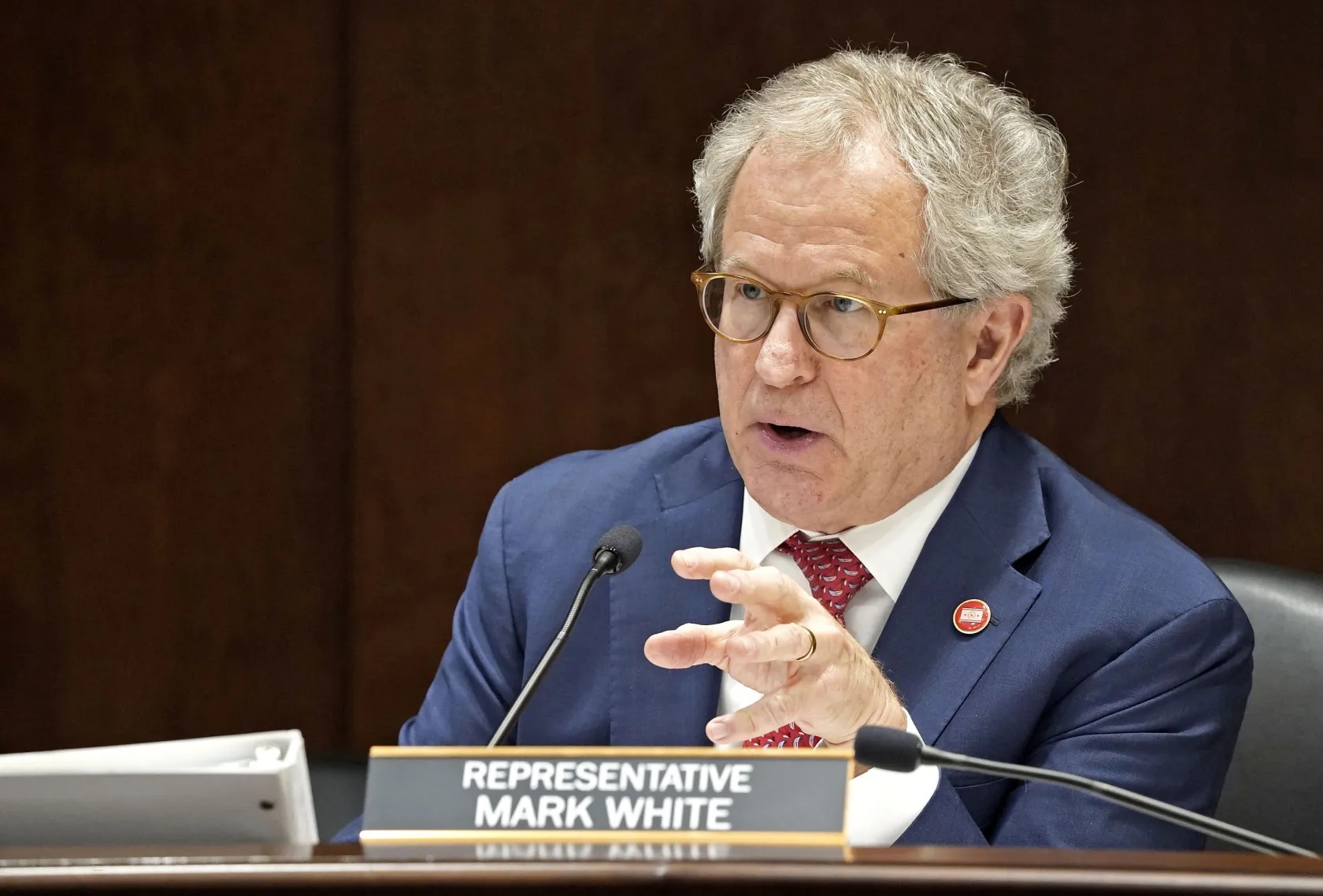This story was originally published by Chalkbeat. Sign up for their newsletters at ckbe.at/newsletters.
Tennessee's private school voucher program, currently limited to eligible students attending public schools in Memphis and Nashville, would expand to all four of the state's urban districts under new legislation.
A bill to extend the program to Chattanooga-based Hamilton County Schools passed last week in the Senate. And under a new GOP measure filed recently in the House and facing its first vote next week, the bill could be amended to include Knox County Schools, too.
Rep. Mark White, R-Memphis, who is co-sponsoring the expansion bill with Sen. Todd Gardenhire, R-Chattanooga, said Thursday that he is seeking to add Tennessee's third-largest district at the request of some Republican state lawmakers from the Knoxville area.
The proposal marks the latest effort to expand eligibility for Gov. Bill Lee's education savings account program, which gives taxpayer money to eligible families to use toward private school tuition.
The program launched last fall as a pilot program under a 2019 voucher law that surmounted a string of legal obstacles and continues to be challenged in court. The law allows up to 5,000 students to participate in the program's first year, but according to the Tennessee Department of Education, the state has approved just over 700 applications so far for families wanting to exit Memphis-Shelby County Schools and Metropolitan Nashville Public Schools this school year.
The House Education Administration Committee, which White chairs, is scheduled to consider the expansion bill and White's Knox County amendment March 29.
Rep. Bryan Richey has filed a more ambitious amendment to take vouchers statewide, but White does not expect a vote on the Maryville Republican's proposal.
"If he tries to run that amendment, it will kill Gardenhire's bill," White said. "I told him, 'Don't run it this year; run it next year.'"
That comment -- and this year's expansion bill -- are indicative of the larger goal of the governor and many Republicans, according to Rep. Gloria Johnson, a Knoxville Democrat who opposes vouchers.
"They're going to push the envelope," Johnson said, "until all of Tennessee's public tax dollars for education are going to private schools and charter schools. And none of those schools are being held to the same standard as our traditional public schools."
Lee, who recently began his second term as governor, has said he wants both high-quality public schools and more education choices for families, even as vouchers and charter schools redirect funding away from traditional public schools.
When Gardenhire filed the original expansion bill in December, he said Hamilton County Schools would be the only district affected. But White said state lawmakers from several other counties approached him later about including their local school districts, too.
On Wednesday, Gardenhire told Chalkbeat that he supports the effort to add Knox County to his legislation. If the House approves it, he plans to bring the bill's expanded scope back to the Senate for a vote.
But several other Knox County lawmakers, including at least one Republican, say they will vote against any expansion.
"I think we have a very good school system in Knox County and that parents already have a lot of choices," Republican Sen. Richard Briggs of Knoxville said.
Briggs noted that students have the option to attend magnet schools, a charter school, specialized learning academies and international baccalaureate programs, and to transfer among the district's 90 schools, as long as there's space available.
Briggs added the last time the legislature voted on school vouchers, the majority of the Knox County delegation voted against them.
"And there's definitely not support for them among our citizens," he said.
Knox County's school board has passed multiple anti-voucher resolutions through the years. However, that body has become more divided since the 2022 elections when a new state law opened the door to partisan school board races and drew local education policy under the influence of the national political divide.
Jennifer Owen, a Knox County school board member who was not up for re-election last year, said she opposes vouchers.
"I'm getting texts from a lot of concerned people here," Owen said of the expansion amendment. "I think people who push this kind of thing brand it as school choice, and people just don't know what that means. But in fact, we already have lots of learning options for kids."
Five Republican representatives from Knox County have signed on as co-sponsors of White's bill: Michele Carringer, Elaine Davis, Jason Zachary, Justin Lafferty and Dave Wright.
On Thursday, Davis, Zachary and Lafferty told Chalkbeat they support White's amendment but declined to comment on why.
Johnson, one of two Knoxville Democrats in the legislature, said voucher support from a few Republican legislators is not an accurate gauge of what most Knox County voters want.
"They are answering to special interests, not the majority of their constituents," she said.
A second GOP-sponsored voucher bill advancing through the legislature also would expand eligibility for education savings accounts, although not to the same extent as the Hamilton-Knox legislation.
Sen. Jon Lundberg, of Bristol, and Rep. Chris Todd, of Jackson, are seeking to expand eligibility to students in Memphis and Nashville who attended private or home schools during the last three school years. The current law says a student must move directly from a public to private school to be eligible for the program.
Their bill cleared the Senate in February and is scheduled for a vote on the House floor on March 30.
Tennessee's voucher law refers to education savings accounts as a "pilot program" and directs the state comptroller to report on the program's efficacy after its third year of enrolling students. But because ongoing litigation delayed the program's launch, the first report isn't due until Jan. 1, 2026.
Chalkbeat (chalkbeat.org) is a nonprofit news organization covering public education.
Marta Aldrich is a senior correspondent and covers the statehouse for Chalkbeat Tennessee. Contact her at maldrich@chalkbeat.org.

